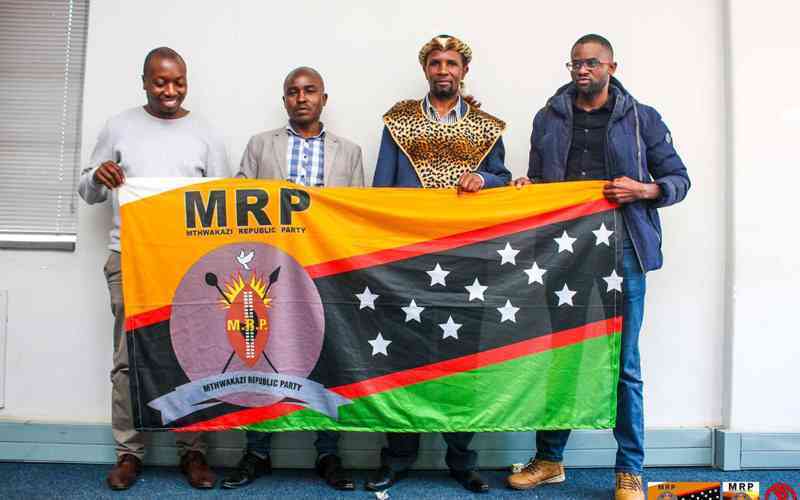
[ad_1]
Nyasha Muchabveyo, a Grade seven pupil in Mutare who was on holiday in the capital, Harare, has just scored 100% in a Water Cycle quiz after several attempts on the Learning Passport e-learning platform. The platform has become her new best friend ahead of upcoming national examinations.
“It is helping me to catch up,” she says. “I have been away from school for too long. I was beginning to fear I would not make the grade for my preferred high school,” she said.
Like millions of other learners worldwide, Nyasha is increasingly reliant on online learning due to COVID-19-induced disruptions to traditional learning.
The Learning Passport is a free digital e-learning platform that is being brought through the Ministry of Primary and Secondary Education, in partnership with UNICEF and Microsoft. It aims to improve the education of millions of vulnerable children around the world, and in Zimbabwe, who face barriers to learning because of poverty, discrimination, conflict and disasters such as the COVID-19 pandemic.
The Learning Passport aims to ensure that children continue to learn even while schools are closed during learning disruptions caused by the COVID-19 pandemic and will remain an online learning resource beyond the current situation.
The content on the Learning Passport was created by a selected group of senior teachers from the Ministry of Primary and Secondary Education who recently gathered in the outskirts of Harare to develop key exam content material and upload it on to the platform. In this first phase of content development, the levels covered were Grade 6-7, and Form 3-4. After going through approved quality checks, the content was immediately uploaded on the portal to allow quick access for learners.

- Chamisa under fire over US$120K donation
- Mavhunga puts DeMbare into Chibuku quarterfinals
- Pension funds bet on Cabora Bassa oilfields
- Councils defy govt fire tender directive
Keep Reading
The ongoing content development has seen the Zimbabwe Learning Passport acquire additional digital library content of teaching and learning resources from the national curriculum as well as open education resources from a wide range of partners, mapped to complement the local curriculum.
This has become a lifesaver for Zimbabwean students writing public examinations scheduled for before the end of the year. For this reason, UNICEF and the Ministry of Primary and Secondary Education are busy ramping up efforts to develop and uploading all content that was developed during the workshop.to the platform.
“Although the Learning passport is a global initiative, the exercise we are conducting here ensures that we develop content that best suits Zimbabwe’s curriculum. The teachers, the parents and the children should be able to take ownership of the initiative,” said Simplicio Rwezuva, an Education Specialist with UNICEF Zimbabwe.
He said although content developers are currently focusing on developing content for examination classes that are currently neediest, the exercise will spread to cover all classes from early childhood development.
“This is an ongoing exercise,” he said to the chatter of computer keyboards and intimate consultations among mask-wearing content developers. The content being developed and uploaded on the platform is leaving no one behind, irrespective of circumstance, he said.
“We have supplementary material in local languages. All lessons, tests and activities, including science experiments and ICT practical work, are presented in text, audio, pictures and video. Those who can’t see, those who can’t hear… everyone is covered,” said Rwezuva. Learners in remote areas where internet access is difficult can benefit from an offline package, while the government has said it is setting up centers equipped with free facilities in these areas.
Like Nyasha, they are likely to experience a near-classroom experience from the interactive nature of the content and step by step multi-format explanations on the platform.
Nyasha credited her teachers for doing their best under difficult circumstances: sending notes, tests and exercises via instant messaging platforms such as whatsapp. It is hardly enough though, she said.
“You still have to do most of the things on your own. But there are concepts that are just too difficult, you need a teacher to explain it for you,” she said.
To cover the gap before getting hooked to the platform, Nyasha would use internet search engines for research – a staggering task for a child her age given the glut of information on the internet.
“I don’t find what I would be looking for most of the time I search the internet. Sometimes it gives me incorrect information. Sometimes there is too much information that I end up getting lost in all that information. I would be confused,” she said.
The content being developed on the Learning Passport is streamlined to ensure that learners focus on information that is relevant to their curriculum needs. Also, it keeps them interested in continuing to learn outside the classroom.
“The pictures and videos make it fun, especially the science and ICT solutions. The fact that it provides for grading at the end of the quiz makes me keep going back because I will be trying to get 100 percent,” said Nyasha. – UNICEF
[ad_2] Source link










